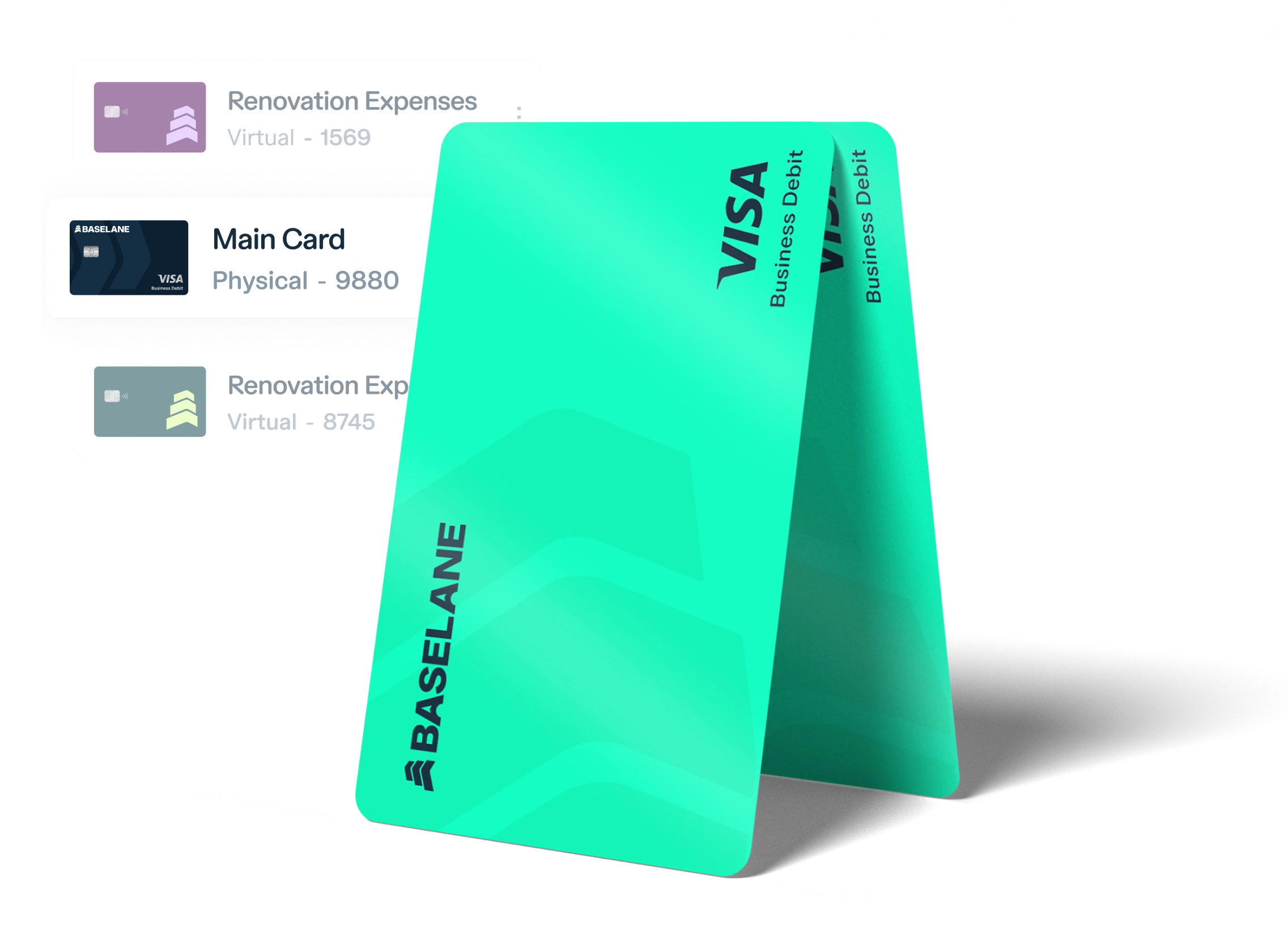Managing rental properties demands meticulous financial organization. For landlords, a key strategy involves finding banking solutions that offer flexibility, cost-efficiency, and avenues for growth.
No minimum balance savings accounts provide an excellent option, allowing you to avoid unnecessary fees while maximizing interest earnings on your reserves. This guide explores the top options and essential features to help you optimize your rental property finances in 2025.
Key Takeaways
- No minimum balance savings accounts prevent penalty fees for landlords, offering financial flexibility.
- High Annual Percentage Yields (APYs) are crucial for growing your rental property reserves.
- Dedicated savings accounts for each property simplify financial tracking and ensure legal compliance.
- Integrated banking platforms designed for landlords streamline bookkeeping and rent collection.
- Strategic use of these accounts can cover operating expenses, capital expenditures, and security deposits.
Understanding "No Minimum Balance" for landlords
The term “no minimum balance” signifies that a savings account will not charge you a fee if your balance falls below a specific threshold. This crucial feature provides landlords with greater financial flexibility. It ensures you will not incur unexpected penalties, even during periods of fluctuating rental income or unforeseen expenses.
It is important to differentiate “no minimum balance” from “no minimum deposit.” While some accounts may require a small initial deposit to open, a true no minimum balance account ensures you won’t face fees for maintaining a lower balance after opening.
This distinction is especially valuable for landlords who may need to access funds for property maintenance or during tenant transitions. This flexibility helps you manage varying rental income and expense cycles without financial penalties.
Key features landlords should prioritize in savings accounts
Selecting the right savings account for your rental property business goes beyond just avoiding minimum balance fees. Savvy landlords prioritize specific features that enhance financial efficiency and compliance. Looking for accounts tailored to real estate investment can significantly streamline your operations.
High annual percentage yield (APY)
A high Annual Percentage Yield (APY) allows your idle cash reserves to grow passively. While traditional savings accounts average around 0.41% APY, top high-yield savings accounts in July 2025 offer strong APYs up to 5%, according to Fortune.
Maximizing earnings on your reserve account interest helps your money work harder for you. Choosing an account with a competitive APY contributes directly to your portfolio’s profitability.
FDIC insurance and enhanced protection
Ensuring the safety of your funds is paramount. FDIC insurance protects your deposits up to $250,000 per depositor, per insured bank, for each account ownership category.
Many modern banking platforms offer enhanced FDIC protection, often through a network of partner banks. This extended coverage can protect larger reserves or multiple security deposits, providing peace of mind for landlords managing substantial sums.
Ability to create separate accounts per property
Maintaining distinct accounts for each rental property is a best practice for financial organization and tax preparation. This allows for clear segregation of income and expenses, simplifying bookkeeping and ensuring compliance with local regulations. Platforms offering the ability to set up multiple bank accounts for landlords or sub-bank accounts are highly beneficial.
Baselane, for example, allows you to create unlimited separate accounts for each property, streamlining your financial tracking. Using a dedicated bank account for each property helps avoid commingling funds, which is especially important for sole proprietor bank account structures. This dedicated approach can also be beneficial for managing various types of rentals, such as an Airbnb bank account.
Seamless integration with property management software
The ability of your savings account to integrate with property management (PM) software can automate reconciliation and reporting, saving significant time.
This integration links your financial transactions directly to your property records. It provides a real-time, comprehensive view of your cash flow and property performance. Such connectivity reduces manual data entry and minimizes errors, enhancing financial clarity.
Transparent fee structure
While seeking no minimum balance accounts, it is essential to examine the entire fee structure. Some accounts may have no monthly fees but charge for incoming or outgoing wires, ATM usage, or overdrafts.
A truly landlord-friendly account will offer transparent pricing with minimal or no hidden charges. This ensures cost-effectiveness across all your banking activities.
Robust mobile banking and digital accessibility
In today’s fast-paced world, access to your finances on the go is indispensable. A robust mobile banking app allows landlords to check balances, transfer funds, and review transactions from anywhere.
Features like mobile check deposit and virtual card management are particularly beneficial for busy property owners. The rise of digital banking for landlords offers unprecedented convenience and control.
Diverse rent deposit options
For seamless operations, consider accounts that offer diverse rent deposit options for your tenants. This includes convenient methods such as ACH transfers, online payments, and even card payments.
Easy collection methods can improve on-time rent payments and reduce the administrative burden on landlords. Efficient rent collection contributes directly to consistent cash flow.
Strategic uses of no minimum balance savings accounts for landlords
For landlords, strategically utilizing no minimum balance savings accounts can significantly improve financial health and operational efficiency. These accounts offer a flexible framework to organize funds for various essential purposes.
Implementing distinct accounts for specific financial goals helps landlords maintain clarity and control over their investments.
Operating reserves
An Operating Reserve Bank Account for real estate covers day-to-day expenses associated with your rental properties. This includes routine maintenance, utility payments, and minor repairs.
Keeping these funds separate ensures you have readily available cash for ongoing operational needs without dipping into other investment capital. A dedicated operating reserve prevents cash flow surprises.
Capital expenditure/replacement reserves
Replacement reserves for real estate are funds set aside for major repairs, upgrades, or replacements, such as a new roof, HVAC system, or significant renovations.
These large, infrequent expenses can significantly impact your cash flow if not planned for. Accumulating these funds in a high-yield savings account allows them to grow until needed. This proactive approach minimizes financial strain when major projects arise.
Security deposit accounts
Handling tenant security deposits often involves specific legal requirements that vary by state or municipality. Many jurisdictions mandate that security deposits be held in separate, interest-bearing accounts.
A no minimum balance savings account can be ideal for this purpose, serving as an escrow cushion. This ensures compliance while keeping tenant funds segregated from your operating capital. Properly managing security deposits is crucial for landlord-tenant relations.
Emergency funds
Beyond planned reserves, every landlord benefits from an emergency fund for unexpected property issues. This could include sudden plumbing leaks, storm damage, or prolonged vacancies. Having accessible funds in a no minimum balance account provides a critical safety net. An emergency fund protects your personal finances from property-related crises.
General rental income segregation
Finally, using separate accounts for general rental income helps maintain a clear distinction between personal and business finances. This separation is vital for accurate bookkeeping, tax preparation, and limiting personal liability.
While some wonder if having multiple bank accounts is bad, for landlords, segregating funds by property or purpose is a sound financial strategy. Using a bank account for multiple users can also streamline operations if you have partners or a property manager assisting you.
Navigating the tax implications of savings interest for landlords
As a landlord, understanding the tax implications of interest earned on your savings accounts is crucial. Interest income, even from high-yield savings accounts, is generally considered taxable income by the IRS. This applies to funds held for operating reserves, capital expenditures, or security deposits. Financial institutions typically report earnings of over $10 via Form 1099-INT, according to NerdWallet.
You will need to include this income when filing your annual tax returns. It is highly recommended to consult a qualified tax advisor or accountant. They can provide personalized guidance on how interest income affects your specific tax situation.
Proper categorization of all income and expenses, easily facilitated by integrated platforms like Baselane, helps streamline tax preparation.
Future trends and innovations in landlord banking (2025 outlook)
The landscape of landlord banking is continuously evolving, with 2025 poised to bring further innovations. Integrated platforms and specialized fintech solutions are increasingly gaining prominence, challenging traditional banking models.
These platforms are designed specifically for the unique needs of real estate investors, consolidating various financial tools into a single ecosystem. This eliminates the need for landlords to juggle multiple disparate systems, saving valuable time.
Expect increased automation and AI in financial management. AI-driven expense categorization, real-time cash flow insights, and automated compliance checks are becoming standard features.
These technological advancements aim to reduce manual busywork and provide landlords with more accurate, actionable data. The future of landlord banking focuses on seamless, intelligent financial control, helping you focus on growing your portfolio.
How to choose the right no minimum balance savings account for your portfolio
Choosing the best no minimum balance savings account for your rental property portfolio requires a thoughtful assessment of your specific needs.
Start by evaluating your current portfolio size and your preferred management style. Do you manage one property or several? Are you hands-on, or do you prefer more automation?
Prioritize features that align with your operational requirements. If maximizing returns on your reserves is key, look for the best high-yield online savings account. If you need streamlined bookkeeping and property-specific accounts, platforms like Baselane or Stessa might be ideal.
Consider if you also need a best no-fee checking account or an online business checking account alongside your savings. Understanding how to set up high-yield savings properly is also essential.
Ultimately, the best choice depends on which bank best supports your journey as a landlord that truly empowers your real estate business.
Bottomline
Choosing the right no minimum balance savings accounts is a strategic decision that can significantly enhance your efficiency and profitability as a landlord.
By avoiding fees, earning competitive interest, and leveraging specialized features, you gain greater control over your rental property finances. Prioritizing accounts that offer high APYs, robust FDIC insurance, and the ability to create separate accounts per property can set you up for success.
Platforms like Baselane offer an all-in-one solution, seamlessly integrating banking, rent collection, and bookkeeping to simplify your financial life. Sign up and get the best fit for your real estate portfolio.
By making informed banking choices, you can streamline your operations, reduce administrative burdens, and maximize your returns in 2025 and beyond.
FAQs
A no minimum balance savings account allows you to maintain any balance without incurring a penalty fee. This provides flexibility, especially for landlords whose income and expenses may fluctuate throughout the year. It prevents unexpected charges that can erode your savings.
While not always legally mandated, having a dedicated bank account for each property is a best practice. This simplifies bookkeeping, tracks income and expenses per unit, and can aid in tax preparation. It also helps in complying with regulations regarding tenant security deposits.
Digital banks or fintech platforms often offer higher APYs, lower fees, and more integrated features tailored for landlords compared to traditional banks. They typically provide better digital tools, automation, and the ability to create multiple sub-accounts for properties. They are often more convenient for remote management.
Many digital platforms designed for landlords, such as Baselane, offer integrated rent collection features. These allow tenants to pay rent online via ACH or card, automate payment reminders, and streamline payment tracking. This simplifies the rent collection process for both landlords and tenants.
Yes, no-minimum high-yield savings accounts offered by reputable institutions are safe, especially when backed by FDIC insurance. This insurance protects your deposits up to $250,000 per depositor, per insured bank, for each account ownership category. Some platforms, like Baselane, offer enhanced FDIC coverage through a network of partner banks.
No, having multiple bank accounts is generally beneficial for landlords. It enables proper segregation of funds for different properties, operating reserves, and capital expenditures. This organized approach simplifies financial tracking, tax preparation, and risk management, provided you manage them efficiently.








